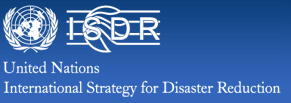The UN Office for Disaster Risk Reduction (UNISDR) has launched the Private Sector Alliance for Disaster Resilient Societies (ARISE), which focuses on ensuring that businesses play an important role in minimizing disaster risk.
ARISE aims to facilitate the exchange of experience and knowledge on how to implement projects in disaster risk management (DRM) strategies, investment metrics, benchmarking and standards, education and training, legal and regulatory, urban risk reduction and resilience, and insurance.
 6 November 2015: The UN Office for Disaster Risk Reduction (UNISDR) has launched the Private Sector Alliance for Disaster Resilient Societies (ARISE), which focuses on ensuring that businesses play an important role in minimizing disaster risk. ARISE aims to facilitate the exchange of experience and knowledge on how to implement projects in disaster risk management (DRM) strategies, investment metrics, benchmarking and standards, education and training, legal and regulatory, urban risk reduction and resilience, and insurance.
6 November 2015: The UN Office for Disaster Risk Reduction (UNISDR) has launched the Private Sector Alliance for Disaster Resilient Societies (ARISE), which focuses on ensuring that businesses play an important role in minimizing disaster risk. ARISE aims to facilitate the exchange of experience and knowledge on how to implement projects in disaster risk management (DRM) strategies, investment metrics, benchmarking and standards, education and training, legal and regulatory, urban risk reduction and resilience, and insurance.
Representatives of companies, industry bodies and research organizations met from 5-6 November 2015, in London, UK, for the inaugural meeting of ARISE, which already has more than 100 members, to discuss among other things, ARISE’s rules of governance and board membership. During the meeting, Margareta Wahlström, Head, UNISDR, and ARISE Chair, called for a concerted effort to expand ARISE’s membership in order to bring in such industries related to oil, banking, telecommunications and the private media.
UNISDR underlines that it has been strengthening its private sector ties for the past five years. It stresses that with economic losses in disasters expected to increase from US$260 billion in 2015 to US$414 billion by 2030, trillions of dollars of new private investment across all sectors are expected in hazard-prone areas by 2030.
ARISE consolidates two UNISDR programmes, which played important roles in developing the Sendai Framework for Disaster Risk Reduction (DRR), adopted in March 2015: the Private Sector Partnership, an advocacy group to develop solutions for resilience and disaster risk-sensitive investment; and the R!SE initiative, aimed at projects that make increase investment resilience.
The Sendai Framework highlights the lack of regulation and incentives for private DRR investments as a risk driver; calls for business to integrate DRR into their management practices; and states that addressing underlying disaster risk factors through disaster risk-informed public and private investments is more cost effective than relying on post-disaster response and recovery, and contributes to sustainable development. [UNISDR Press Release, 5 November] [UNISDR Press Release, 6 November]